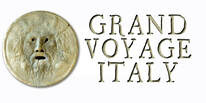|
While researching another topic on Google Earth I came across an amazing sight... this very expensive, over-engineered monster of a rotary (rotante in Italian) in Catanzaro, Calabria. Rotaries in Italy are commonplace and (believe it or not) are simple to use, unlike the "circles" as we call them in the States, where everyone tries to jockey for position entering or exiting the "circle", cutting across lanes and causing fender benders all over the country. They are not for timid drivers.
But in Italy, the rotary is one of the few things Italian engineers and Italian drivers got right. I never had a problem going around one. The exits and entrances are simply and clearly marked, for the most part they are single lane (except for the big one in the photo above) and drivers slow down when entering and give leeway to the car entering first. It's a smooth flow of traffic around them. They are also are also usually built at ground level with simple engineering and similar layouts... pretty much every rotary looks like every other one. There are no surprises when entering and the signs for the roads coming from them are clearly marked. The elevated highway rotary in Catanzaro is the first massive one I've seen... and the first elevated 75 feet into the air on all sides!
0 Comments
Even if you study Italian you might find yourself scratching your head wondering what in heck they are talking about when hearing unusual or seemingly out of context expressions. As in English, Italians also use a lot of slang, idioms and other odd ways of saying things or conveying emotions. And just as an American might use an odd, nonsensical sounding phrase such as "He has a chip on his shoulder today" or "He got up on the wrong side of the bed". Both mean the person is in a bad mood and neither would be taken literally... unless that person is a newcomer to speaking fluent English.
Now turn this situation around and consider how you will look with blank stares at people in Italy, not knowing what in heck they are talking about, even though you might be interpreting the individual words correctly. Cornuto: Horned You might hear someone say "Stefano is cornuto." or "Poor Maria has become cornuto" or "Stefano has put cornuto on Maria". Cornuto means horns, or more precisely, horned. But this common idiom means that Stefano is being cheated on by his wife... or Maria is being cheated on by Stefano... or Stefano is cheating on Maria. The person with the horns is the one being cheated upon. Che Palle: Literal, What Balls This one is similar as saying "What balls he has" in English, but Italians use Che Palle in other ways too. It can also mean a person is bored when they declare "Che palle!" along with an exhaustive breath. A Person being annoyed might suddenly declare "Che palle!" when they are getting fed up with the person or child bothering them. If something is being repeated or becoming redundant to the point of annoying, like when someone has his car break down for the 3rd time that week, "Che palle" is appropriate. You might hear this a lot... it's like saying "damn!" You might hear a lighter version of this... "Che Pizza!" Buono Come il Pane: good as bread This can refer to a person, a thing or a situation. Brutto Comme la Fame: As Ugly as Hunger In English we might say something is as ugly as sin, but in Italian one of the ugliest things in their history is hunger itself. Stomaco da Struzzo: Stomach of an Ostrich We might say someone who can eat anything without getting sick has got a cast iron stomach, but in Italy he's got the stomach of an ostrich. Fa un Freddo Cane: It's dog cold Used to described a bitterly cold night. Un Coniglio: A rabbit Use this to describe a coward, someone who always run or hides from confrontation. Una Volpe: A Fox A sly, clever person. Someone who can work a way around the rules or easily solves problems. Tutto fa Brodo: Everything Makes Broth If someone offers you a hand lifting something heavy, you might say Tutto fa Brodo, every little bit helps Botte Piccola Fa Vino Buono: A Small Cask Makes Good Wine A way of paying a compliment to a short person. Inghiottire il Rospo: Swallow the Toad We say suffer indignity or embarrassment without complaint, Americans say you Eat Crow, but an Italian will say that you Swallow the Toad. Un Pollo da Spennare: Chicken Waiting to be Plucked A stooge, someone who can be taken advantage of, fooled or robbed. In Bocca al Lupo: Into the Mouth of the Wolf You say this when you want to wish someone Good luck! This saying finds its roots with hunters. In Culo Alla Balena: In a Whale's Ass Crude way of saying Good Luck, perhaps referencing the good fortune of a whaler harpooning a whale. O Bere o Affogare: Drink or Drown Similar to the American expression, to sink or swim, either there will be great success or an absolute failure. Qualcosa Bolle in Pentola: Something's Boiling in the Pot This means there is something in the works, usually something not pleasant, similar to Trouble is Brewing. Che Cavolo!: What the Cabbage! Often just Cavolo! Cavolo literally means Cabbage. Casual, not very offensive, similar to Damn it!, Darn!, Dang! Buona Notte al Secchio: Good Night to the Bucket When all is lost and you are going to be in big trouble, but not quite as finite as our Kick the Bucket expression. Refers to when a bucket drops into a well and there's no way to get it back.-- All is Lost. Un Pezzo Grosso: a Big Piece Referring to a Big Piece (i.e., a big caliber gun), in Italian this is slang for a Big Shot and used to refer to someone who carries a Big Gun (or piece), but is commonly used for anyone who is a Big Shot... politicians, crime bosses, CEOs, etc. In Sicily (and in the Godfather books) Pezzonovante is used the same way. Ad ogni morte di Papa: For Every Death of a Pope We would say Once in a Blue Moon. Italians say this because Popes usually hold their positions until they die, in essence, it describes something that happens rarely--once in a lifetime. Sogni d'oro: Golden dreams Used just like Sweet Dreams in English. Cercare I Peli Nell'Uovo: to Look for Hairs in the Egg In English, this means to be fussy, overly picky, in other words, a real PITA. Caduto dalle Nuvole: Fallen from the Clouds Completely taken by surprise, or pretending to be. Avere le Braccine Corte: To Have Short Arms Having short arms means being too cheap to reach into your pocket... short arms mean they can't reach their wallet and rely on others to pay (for dinner, drinks, etc.). Avere le Mani in Pasta: to Have your Hands in Dough: In English, you'd say you are spreading yourself too thin. Un Libro _______ (color): Varied meanings Un libro giallo (A yellow book) is a detective story or mystery; Un libro rosa (A pink book) is a romance novel; . Un libro nero (A black book) is a blacklist. C'è un giudice a Berlino: There's a Judge in Berlin Used to say that justice will win in the end. Non Mi Rompere i Maroni: Don’t Break My Chestnuts! Similar to the U.S. expression, Don't Break My Balls. Farò le polpette di voi: I'll Make Meatballs out of You! This is a threat, similar to "I'll make mincemeat out of you!" C’ho il Dente Avvelenato: I've Got a Poisoned Tooth This means I've got a Grudge. You would say this when asked to voice your opinion... if you're opinion is tainted or biased strongly, you would warn that I've Got a Poisoned Tooth on this subject. Dalle Stelle alle Stalle: From the Stars to the [horse] Stalls To fall from grace. After having great success to lose it all. Capita a Fagiolo: It Happens at the Bean It happens at exactly the right moment, as with poor people of the past, when beans were their main meal... as in it happens just when we need it (the bean) most. Essere al Verde: to Be At the Green This means someone is broke, out of money. Some say this comes from gambling at casinos--when all your chips are gone, you look down at the bare green felt of the table. Others think it refers to peasants who were so poor they would pick greens and roots from the fields in search of food. Another theory is that it refers to auctioneer candles that were painted green in the bottom half--when the candle reached the green, the flow of money would come to a stop. Vai a Farti Benedire or Vai a Quel Paese: Go Get Blessed/Go to That Country (or town, can be specific) Italians have many ways of saying Get Lost! Two milder forms are Vai a Farti Benedire (Go Get Blessed) and Vai a Quel Paese (Go to That Country). Fari i Salti Mortali: Make a Mortal Jump This means to Bend Over Backwards for someone... to make an extraordinary effort. Tra il Dire e il Fare c'è di Mezzo il Mare: There is an Ocean Between Saying and Doing The English equivalent of There's a Big Difference Between Saying Something and Actually Doing It. Or... There is many a slip between cup and lip. This idiom is a commentary on good intentions and the idea that they often don't always happen the way they are promised. Peli Sulla Pancia: Hairs on the Belly Usually used in the negative form: not having hairs on one’s stomach means to be tough, able to stand up to criticism. Un Cane in Chiesa: A Dog in Church It is used as "He's as welcome as a dog in church" or simply to refer to An Unwelcome Guest. Dormo come un ghiroun ghiro: I Sleep Like a Doremouse In the U..S. we Sleep Like a Log, but in Italy you sleep like a doremouse. Essere in Un Bel Pasticcio: to Be in a Nice Pie: This expression is equivalent to being in a pickle. Alla Come Viene, Viene: How it is, so it is. Similar to It is what it is, usually referring to something that turned out poorly. Acqua Passata: The Water Passed We would say It's Water Under the Bridge about something in the past that shouldn't be a concern any longer. Mettere il Bastone tra le Ruote: To Put a Stick into the Wheel (as in a wagon wheel) To bring something to a stop... Put a Monkey Wrench in the Works. Avere la Botte Piena e la Moglie Ubriaca: To have the wine cask full and the wife drunk Used just like To Have your Cake and Eat It, Too. Acqua in Bocca: Water in the Mouth This is equal to Mum's the word, don't say anything about it! Dio li Fa, poi li Accoppia: God Makes Them, Then He Mates Them. Said of any unlikely couple paired together by nature or fate... similar to There's a Match For Everyone. Tirare il Pacco: To Pull the Pack When you “Pull the Pack,” it means you didn’t show up to a date or meeting with a friend, you're a disappointment to them. Also, the word Pacco can by itself represent a disappointment, like describing a bad movie you saw as a pacco (or other similar words meaning pack, bundle, package). Che pacco (what a disappointment) or Essere un Pacco (Being a Package) describe something disappointing or boring--common expressions among young people. Hai voluto la bicicletta? E adesso pedala!: You wanted the bike? Now you’ve got to ride it! Similar to You've made your bed, now you've got to lie in it. A sarcastic way of saying I Told You So to someone who you've forewarned that their actions would bring about problems. Braccia Rubate all’Agricoltura: Arms Stolen from Agriculture When a white collar worker is clearly inept, you say this, inferring they'd be better off working on a farm. Parlare Fuori dai Denti: To speak outside of one’s teeth To speak honestly and bluntly.. to speak one's mind boldly. Non Avere Peli Sulla Lingua: Without Hair on His Tongue When one friend asks another to be brutally honest about their opinion, they will ask him to say it “without hair on his tongue.” Attaccare il Cappello: To Hang up One’s Hat Describes (usually) a man who married a rich woman, and never has to work again. Piove sul Bagnato: It Rains on the Wet Too much of a good thing. Fare Passi do Gigante: To Take Giant Steps To make progress by Leaps and Bounds, to make progress very quickly. My father was born in Molfetta, Puglia in the South. My Mom's mother and father came from Naples. Both spoke dialects of Italian. My mother often said that my father's dialect was so different from hers that she couldn't understand certain words. If you watch the Godfather, especially the scenes in GF II showing Vito Corleone as a young man, you can hear this sort of dialect... albeit Sicilian. The words in the South are often totally different. Lots of slang is used. Liaisons happen... Usually, the end of one word attaches to the beginning of the next word. Beginnings of words are often omitted. Even Italians consider these dialects like another language... for example, the announcements on the train from Bari to Rome are in English, Italian and "Dialetto". Dialect sounds nothing like regular Italian down South.
Now, add to all this the fact that Italian immigrants in American spoke a sort of second hand Italian dialect, much was lost to misunderstood pronunciations and the fact that many (like my parents) didn't want to speak Italian in the home. When I asked why my parents didn't teach us Italian, they said they wanted an "All-American" home for us. Even today in the South parents don't want their children to speak Dialect when they move to the big cities in Italy. They are looked down upon for speaking it by Northern Italians. What a shame... These dialects are what makes Italian so interesting. Here are a collection of words and phrases that I grew up with... spelled phonetically: Stoonod Idiot Mopeen Dish Cloth, Rag Agida/Agita Acid indigestion caused by someone aggravating you Googootz A fool Cabbadost Thick head/stubborn sfatcheem a Jerk Stroonz an Ass Stroonz-a-medz Half ass Strombolone Clumsy Chooch Jackass Briagone Drunk A-fa Nabalee Get out of Here/Go to Naples Facha-broot Ugly face Dees-Gradseeyad You disgrace! Stata-Geet Shut Up SkeeVo Disgusting Ashpette Wait! Jadrool Lazy bum (cucumber) Ooo-Fah I've had it/I'm fed up TooSay Batz You're crazy Bock-owz Bathroom/stink house Bazanigole Basil Boombotz Idiot/Crazy Brazjole Brasciole/Penis Kay-Gotz What the F*ck Gotzo What Balls Coh-Yonees Balls Ah-Va-Fan-gool Go f*ck yourself Pasta-vazool Pasta fagioli (bean soup) Gobba-ghool Capicola (a type of cold cut meat) Gabeesh? Understand? Gavone Pig/Slob/Overeater Jamoke Idiot Goombah Pal/Comrade/Friend GooMahd Girlfriend ComoseeCyam? What do you call it? Keh -sa-deech? How are you? Mal-yOke Evil eye Mamaluke Idiot/stupid/screw-up Manageya Damn it/Curse it Managutt Manicotti (pasta) Madone! Madonna! (exclamation) Medz-a-medz So-so/half and half/not so much Mutzarelle Mozzarella cheese Naboleedahn Neapolitan/someone from Naples piezahn Friend/countryman/brother Pitza-gaina Egg-meat pie Boochach Bitch Rigutt Ricotta cheese Scarole Escarole/Cash money Skutch Pest StuGotz Screw it/F*ck it Vena Ka Come here --Jerry Finzi If you found this post useful, please LIKE it and tell your friends about Grand Voyage Italy. Ciao! Copyright, Jerry Finzi, Grand Voyage Italy, All rights reserved 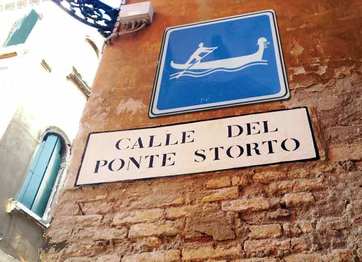 Do You Speak Italian? From This Italian Life, by Phyllis Macchioni CHIAVARI, Italy - If you are one of those who stays up nights studying Italian before embarking on your trip to Italy and you still didn’t understand anything when you get here, all I can say is join the club. It happens to everyone. What Italian teachers don’t tell you is that Italians don’t really speak Italian, I mean they do speak Italian of course, but not all the time. Let me explain... (more...) We all have to deal with our emotions when we travel--especially in Italy--after all, it is an emotional country and the stresses of traveling can bring out emotions from one extreme to the other... from "I can't believe how beautiful!" to "What?! I've got to pay to use the toilet?" We should be able to let someone know what our emotions are while in Italy. Sure, you can use... er... hand signals, but that can get you into a world of trouble if you're not perfectly fluent in Italian hand gesturing. (I'll tell you the story some other time when I flipped someone the bird driving through insane Pisa traffic...) Letting someone know how you feel by using the correct words to actually tell him helps to humanize the experience of communicating to other people, even if you're not completely fluent in Italian. So when you get the wrong type of car in a rental joint in Italy, you can tell them how you are sorpreso that they don't have an automatic shift for you when you made the booking months in advance. You can say how arrabbiato you are and wait until they say dispaciuto while they get an upgrade automatic ready for you... then you can say how contento you are that they fixed their mistake. And don't forget to look fiero after you got an upgrade to an automatic Mercedes from the automatic Fiat Punto you originally ordered! If you like this post, please LIKE us and tell all your amici about Grand Voyage Italy. Grazie!
First of all, there is no 911 in Italy. There is 113. There are other emergency numbers too, but there is also a language problem. When you're in a traffic accident, or in the middle of a medical crisis, it's often difficult to say things correctly in English, no less in another language. I remember one time when calling 911 for a small fire in our house, I stumbled over the address a few seconds. It can happen to all of us.... so when traveling in Italy or especially when planning an extended stay there, a little emergency planning is well worth the effort. First off, here is a list of emergency numbers. I suggest programming them into your mobile phone before leaving for Italy, with a description of each. Or simply create a list and print it on a business card to place in your wallet. Useful Numbers in Case of Emergencies:
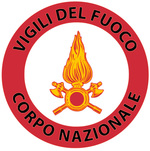 The Fire Brigades The Vigili del Fuoco, literally the Firewatchers, (official name Corpo nazionale dei vigili del fuoco or CNVVF), Italy's institutional agency for fire and rescue service. As a national service it is under the oversight of the Ministry of the Interior. Much of Italy (depending on which region you are in, and what deal they have with Rome) have nationally funded fire brigades. There are also volunteer fire fighters at the local level. In general, in case of fire, call 113 to report a fire and say: "Vi è un incendio _say the address_" ("There is a fire at _address_", Click the link then click the speaker icon for pronunciation). Ambulances/EMS Calls Emergency medical services in Italy consist primarily of volunteer organizations providing ambulance servicea, and by physicians and nurses who perform all advanced life support procedures. The emergency telephone number for emergency medical service in Italy is 118. Emergency medical services are under Public Health Authorities control in each Italian Region; the ambulance subsystem is provided by a variety of different sources. The method of delivery can vary considerably from one location to another. In some locations, responsibility for the provision of EMS has been undertaken by the local hospital, while in others, services may be provided by a range of volunteer organizations, such as the Italian Red Cross (Croce Rossa Italiana), ANPAS (National Association for Public Assistance), Confraternite di Misericordia, other associations commonly known as "Cross" (Croce), usually followed by a colour (White Cross, Green Cross, Yellow Cross...), or by private companies. In a life-threatening emergency, such as a heart attack or serious accident, call the free public first-aid number 118. State clearly where you’re calling from and the nature of the emergency, and give your name and the telephone number from where you’re calling. Don’t hang up until the operator asks you to. The appropriate emergency service is sent to you. Provided you call in response to a genuine emergency, you won’t be charged for the use of the emergency services. Two basic phrases to say: "Ho bisogno di aiuto medico!" ("I need medical help!" Click the link, then click the speaker icon to hear the pronunciation). "Sto male, aiuto!" ("I am hurt, help!" Clink the link then click the speaker to hear it spoken) Spelling on the Phone in Italy In Italy there is some help, albeit a bit confusing and new to the American traveler. When spelling on the phone in Italy they use the alfabeto fonetico—the Italian phonetic alphabet. It is similar to the U.S. method of spelling.... such as, "Alpha Bravo Charlie" (A B C) used in the military (or when speaking to company service representatives) to avoid miscommunication when speaking on the phone. The only thing is, Italians use names of Italian cities--some you might not have heard of--Ancona, Bologna, Catania, etc. To spell my last name, I would say "Firenze, Imola, Napoli, Zara, Imola"... F I N Z I. Alfabeto Fonetico: A come Ancona B come Bologna (or Bari or Brescia) C come Catania (or Como) D come Domodossola E come Empoli (or Enna) F come Firenze G come Genova H come Hotel (acca) I come Imola J (gei or i lunga) come jolly (the joker in Italian card games) (or Jugoslavia) K (kappa) come Kursaal L come Livorno M come Milano N come Napoli O come Otranto P come Palermo (or Padova or Pisa) Q come Quaderno R come Roma S come Savona (Sassari or Siena) T come Torino (Taranto) U come Udine V come Venezia (Verona) W (vi/vu doppio) come Washington (Wagner) X (ics) come Xanto (xilofono) Y come ipsilon (York or yacht) Z come Zara (Zurigo or zeta) Or, believe it or not, an easier way is to simply practice saying the Italian alphabet... the way the Italians do. Learn it. Sure it will take a little practice, but it's very helpful when in Italy. I had to spell my name several times when I was there and never resorted to the military style above. Really try to say each letter with an Italian accent. Here is an excellent video which will teach you not only about how to say the names of letters in Italian, but will teach you what sounds the letters make when used in words: Words and Phrases
And for more, here is a link to a more comprehensive list of phrases to use in emergencies... So, there you have it, a little primer on how to call for help in Italy. I hope and pray you won't even need this stuff, but it pays to be prepared (and I was never a Boy Scout!). Stay Safe! --Jerry Finzi If you found this post useful, please LIKE it by pressing the buttons at the bottom of the page. Grazie mille! Copyright, Jerry Finzi, Grand Voyage Italy, All rights reserved 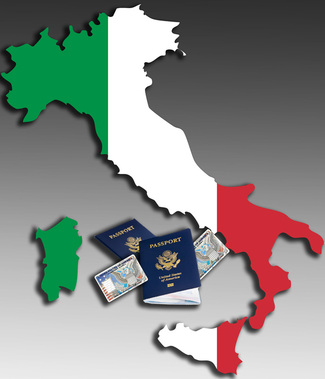 The Department of State has developed a Passport Card as a more portable and less expensive alternative to the traditional passport book. The passport card is a basic component of the PASS (People Access Security Service) system announced in January 2006, and meets the specific requirements of the Western Hemisphere Travel Initiative (WHTI) to secure and expedite travel, a provision of the Intelligence Reform Terrorism Prevention Act of 2004, which requires citizens of the United States, Canada, and Bermuda to have a passport or other designated document that establishes the bearer's identity and nationality to enter or re-enter the United States from Mexico, Canada, the Caribbean, and Bermuda. The passport card is the credit card-sized travel document that can only be used to re-enter the United States at land border-crossings and sea ports-of-entry from Canada, Mexico, the Caribbean, and Bermuda. The card provides a less expensive, smaller, and convenient alternative to the passport book for those who travel frequently to these destinations by land or by sea. The passport card cannot be used for international travel by air, however it can be used as proof of identity in Europe. Valid for international travel by air, sea, or land. The passport card has a vicinity-read radio frequency identification (RFID) chip. Laser engraving and state-of-the-art security features minimize the possibility of counterfeiting and forgery. The card is issued with a protective sleeve that prevents the card from being read when not in use. The RFID technology used in the passport card will enable the card to be read at a distance by an authorized CBP reader mounted alongside the traffic lane (for instance, Canadian border crossing). The chip contains no biographic data as is the case with the e-passport. The chip will have a unique number linking the card to a secure database maintained by DHS and State. However, to address concerns that passport card bearers can be tracked by this technology, the card comes with a RFID shield sleeve that will prevent the card from being read while inside it. There are travel wallets that also contain such shields. Should I Carry a Passport Card to Italy or other European Countries? Even though it's is only recognized at border crossings for Mexico, Canada, Bermuda and the Carribean, I think it would still be a useful addition to your travel wallet. You should always keep your regular passport in a secure place--some keep it in hotel safes, but I suggest using a money belt, leg wallet or other secure method of carrying it. I would use the Passport Card as a backup in case your Passport is lost or stolen. One person can carry the passports, the other can be responsible for the Passport Cards. Keep it in a separate place away from your normal passport. I might even keep it in my money clip wallet with my daily cash, main cash card and driver's license. It would function as a second method of identification, such as when renting a car or with local officials, such as the police. I would NOT leave the Passport card with anyone as it has your passport number on it. Think if it as merely a backup to your regular passport. Even then, I would still keep a scanned image of your normal passport in a secure file on your smart phone (preferably via an online storage service like DropBox.) Keep in mind, the Passport Card doesn't show your visa and/or entry stamp so they can't determine if you are in the country legally or not. So, it may be accepted as proof of WHO you are but not WHY you are in the country. So, for I.D. and backup use, and to help in case you lose your regular passport, yes. For international travel documentation in Europe, no. How do I get a Passport Card? To apply for a card, you use the same form that you would use to apply for a passport book (DS-11 or DS-82). There is a checkbox on the form for you to indicate that you are applying for a passport card. If you already have a passport book and you are eligible to use Form DS-82 (renewal by mail), you may apply for a passport card using DS-82 even if this is your first passport card. Otherwise you will need to use form DS-11 to apply for a passport card. The same one photo requirement for the passport book is true for the passport card. Valid when entering the United States from Canada, Mexico, the Caribbean and Bermuda at land border crossings or sea ports-of-entry. Not valid for international travel by air.
Cost for first time applicants when buying regular passport and card: Adults: $165 Minors: $120 --Jerry Finzi
If you found this post useful, please use the buttons below to LIKE and share it with your friends. When staying in a hotel, B&B or agriturismo in Italy, ask for a business card of the place you are staying at and put it in a prominent place in your wallet.
There is one successful story of someone dropping his wallet in a parking garage. Someone picked it up and returned it to the parking management (See? There are kind people in Italy). The manager saw the card and called the hotel. The hotel contacted him while he was out. Wallet successfully recovered! If traveling and moving from hotel to hotel nearly every day, you can prepare your own itinerary card before leaving on your trip with phone numbers. Print it in small sized fonts to fit a standard sized business card and put a title in both English and Italian on top, such as "If you find my wallet, here's where I will be:-Se trovate il mio portafoglio, ecco dove sarò:" As a preventive measure, try to not keep your credit card or ATM card in your wallet. I used a leg wallet that fit comfortably on my calf to hold our passports and extra credit cards. Women can use a bra card pouch. I tended to get cash only when I needed to replenish our 2-3 day supply. I'd hold what I needed in my pocket and the balance would go into my leg wallet. I opted to keep my everyday cash and main card in a small billfold type wallet... less of a pocket bulge, and if I was in crowded situations (railway stations, lines for tickets, crowded tourist spots, etc.) I could simply keep my hand tucked in my pocket to make sure I was touching it until we were out of harm's way. A large wallet makes an obvious bulge that pickpockets are always hunting for. If anything, try not to keep large amounts of cash in your wallet when traveling. If someone finding it is tempted with lots of cash, they might lose their soul for a moment and give in to that temptation... keeping the cash and tossing the wallet in their nearest trash can. Stay safe! --Jerry Finzi If you liked this post, please SHARE it on FACEBOOK or TWITTER... grazie! Learn about the supermarkets of Italy! Plus, a comparison chart!
When booking an airline flight, which seats don't recline, which seats are too close to the lavatory, where the baby bassinet is located, the best seats for legroom, the type of in flight entertainment, where the power outlet is... Well, TripAdvisor's SeatGuru helps users book flights, pick seats, and even monitor the flight status. There is a website and an app with over 700 seat maps from over 100 airlines along with reviews.
Using the site or the app is pretty straightforward... enter the airline, flight number, and date of your upcoming flight, and it'll give you seat recommendations. You can discover which seats have extended legroom, a power outlet, or if they have a restricted recline, like the seats in front of the exit rows. The app is a free download for most hand-held devices. In addition, SeatGuru has all sorts of helpful articles about all aspects of flying... favorite airports, advice on electronics, airport guides, traveling with pets, best airport lounges, etc. And their new tool is very helpful: flight booking with built-in seat recommendations. All in all, this is another great tool for making your travel plans easier.... and your flight more comfortable. --Jerry Finzi  Here is an odd tale.... or tail, should I say. It's a tale of a visitor going to Italy and finding out that animals talk, screech, bark and chirp differently there. On my first day waking up in the agritourismo, I heard a welcome country sort of sound. To me, I heard, "Cock-a-doodle-doo!). Obviously a rooster waking with the sunrise. When I mentioned it to the padrone later on, he nods his head and says, "Si, that was the gallo with his morning 'chicchirichí'"! (kee-kee-ree-keee). "Ok", I nod. So he takes me over to his hen house. They produce organic eggs here, too. There are lots of chickens going "cluck, cluck, cluck", or so I thought. He says "I like-a to hear my galline (hens) laying eggs and saying coccodè" ("cock-o-day"). Then I know-a they are-a happy". Ok. Then he shows me their chicks in a sort of incubator setup to keep them warm. Lots of cheep, cheep, cheeps going on. He picks up one and cups it in his hand and mimics "Ahh, piccolo pulcino, pio, pio, pio". (pee-o, pee-o, pee-o). Uh huh. He suddenly spied a hole down near the floor where a tiny mouse got in and is eating some feed. "Squit, squit, squit" he says as he tries to land a shovel on top of the little guy. All I heard was a "squeak, squeak" as the mouse disappears into a crack. "He's-a mangia here every day... piccolo topo demone!" We walk down toward his field and one of his donkeys is having a little hissy fit... "eee, aww, ee, aww!" He goes right up to him, pats him on the rump and says "i-oo, i-oo (eee-oo, eee-oo), mio asino, calma, calma." I picture Shrek's buddy as I watch him calm right down and start nibbling on a weed. He wanted to show me his bee boxes near the pond, and as we get close I hear a "ribbit, ribbet". He notices me looking for the source of the croaking and says, "Ahh le rane... cra, cra! Over near-a the water." I see some crows passing overhead and of course he looks up and says "Ahh... Il corvo... cra, cra, cra". Mmmm.... In Italy I suppose frogs and crows are some sort of cousins. There are lots of cousins in Italy. Onwards toward the bee boxes, when I hear a wayward sheep say "Baa". Padrone mimics again.... "Hey, get back over there, mia pecora.... Bee... beee!" grabs him by his wool and lifts him back over the fence into the field. "Bee?" Does the sheep know we're going to see the bees? Somehow, I don't think so. We get to the bee boxes and all I hear is "Bzzz... Bzzzzz" while he lets out, "zzzz.... zzzz... zzzz... see the ape? They won't sting. No worry We make-a our own miele here too!" Then the goose on the pond let's out a "Honk, Honk" and he answers back "Qua, Qua, oca!" and throws a crust of bread he had in his pocket to the long necked beauty. As we wandered back around the main field and on toward the main house, I saw some cows laying down near the fence with a cat playing around their tail. Then he points amused and says "Look-a, the gatto, she plays with-a the mucca... miao, miao... MUuuuuuu...." At least some animals around here talk English! As I get back to my little stone cottage, one of the many dogs on the farm runs up to me and barks, "bau bau!" Wait a second. I'm actually starting to get the hang of this language! "Here boy", I call... "venire qui, cane... bau, bau!" I give him a piece of sausage from my pocket. (Where'd that come from?) (Gotta remember to buy some of that miele before I leave). --Jerry Finzi You can also follow Grand Voyage Italy on: Google+ StumbleUpon Tumblr  Roberto Benigni: An example of Italians thumbing their nose at life while they keep on smiling. Roberto Benigni: An example of Italians thumbing their nose at life while they keep on smiling. There are many truths about Italy that people never discuss and few even know about. Here are a bunch of interesting truths I've discovered about Bello, Pazzo Italia: 1. Naples and New York City are on the same lines of latitude (both being the same distance from the North Pole and the Equator). Their weather should be the same. New York can have a lot of snow and even blizzards each winter, while snow in Naples is very rare. New Yorkers will be bundled up in October with frost on their pumpkins, while in Naples the locals could still go to the beach for a few last swims. 2. The word pizza is one of the most understood words all around the world, in any language. It's right up there with Coca-Cola and OK. Put them all together and you can order a pretty decent meal just about anywhere on Mother Earth... "Pizza, Coca-Cola, OK?" 3. The average Italian earns nearly $28,000 per year, with those in the South earning far less and those in the North earning as much as $40,000 annually. That's some crazy distribution of wealth! 4. Italy has a larger proportional senior population than the United States... 20% of their population is over 65 where in the United States it's only 14%. Eating all that pasta, taking 2-3 hour lunch breaks and the antioxidants in tomato sauce must be doing some good! (It's almost lunchtime... I'm going to have some pasta and then lie down for a few hours.) 5. Italians are increasingly reporting that, despite their nation’s reputation for amazing natural beauty, good food and wine, some of the best art in the world, and a laid back lifestyle and longevity, they are not happy. The country legalized divorce, contraception, and even abortion in the 1970s. The current population shows that Italian families have 1.27 children each. Perhaps they should go back to having large families like their great-grandparents did and the happiness will return. Perhaps they need to put in place a truly centralized government that doesn't give preferential treatment only to the large industrial or biggest tourist regions. 6. The population of Italy is over 60 million, fast approaching France's 66 million. France is a much larger country with more space for its people. It's a good thing Italians drive such small cars or the place would really feel crowded. 7. In Italy, people over 18 can vote--well, almost true. That's only for local and general elections. You have to be over 25 to vote in the senate elections. To be elected for the senate, you must be at least 40. Italian Youth = Taxation Without Representation. 8. The unemployment rate in Italy is high at 13.4%, but this is a national average. The shocking truth is that in the South the numbers reach over 18%. To illustrate the difference between North and South, in the North the unemployment rates are less than 0.6%. This could be the reason we found a lot of abandoned properties in the southern part of Italy. Many young people told us they were planning on heading to Rome or Milan or leaving for the U.S. 9. Many of William Shakespeare's stories were set in Italy... Julius Caesar, Much Ado About Nothing, Romeo and Juliet, The Merchant of Venice, Othello, Antony and Cleopatra, A Winter's Tale, Coriolanus, Cymbeline, Taming of the Shrew, Titus Andronicus, and The Two Gentlemen of Verona. Despite all of this, there is absolutely no evidence that Willy Boy ever stepped foot in Italy, chowed down on pasta and Chianti or had a slice of pizza. Willy, you don't know what you missed. 10. The piano was invented in Italy around 1700 by Bartolomeo de Francesco Cristofori, a harpsichord maker. Besides piano meaning piano in Italian, it also means floor. 11. Eau de Cologne sure sounds French, but it came from Cologne, Germany. To add stinky insult to perfumed injury, an Italian invented it... Giovanni Maria Farina, who later changed his first name to Johann. Take that, you perfumed Frenchies! 12. The Italians got pasta from China, right? Wrong. Way before Marco Polo went to China in 1292, Italy had already been enjoying pasta for several hundred years. After visiting Sicily in 1154, Arab geographer Idrisi wrote about a food people made from flour and turned into long strings. Sound familiar? 13. Italy has always produced cars... That teeny car, the Fiat 500 is only part of an entire automotive empire which owns the legendary brands of Lamborghini, Ferrari, Maserati and Alfa Romeo. Much like the Roman Empire, Fiat now has its sights on taking over the world. It now owns all the Chrysler brands. Toyota, bring out your legions and defend yourself! 14. Pizza is said to have originated in Naples. Don't you believe it. The word "pizza" was first documented in 997 AD in Gaeta, about 60 miles north of Naples. But flatbread pizza--called panis focacius by the Romans--was eaten 2000 years ago all over the Roman Empire. Similar to focaccia of today, various toppings were added to turn the flat bread into a complete meal. 15. Tomatoes are not native to Italy. Originally found in the Americas, they were brought back to Europe in the 1500s. Many were convinced that, like its cousin the nightshade plant, they were poisonous. When Italy got a hold of them, they crushed and cooked them. Later, in the Naples area they started putting the red sauce on top of flatbread--the modern style pizza was born. 16. Italian Inventions: Ice cream cone, car battery, wireless communications, nitroglycerin, thermometer, nuclear reactor, eyeglasses, Pinocchio, the typewriter and the telephone (look up Antonio Meucci). 17. Italians are 95% Roman Catholic but only about 30% go to church each week. But they all wear crosses or their patron saint around their neck, so they're covered. Father forgive them. 18. About 35% of Americans are obese. Even after consuming 26 gallons of wine, 182 pounds of bread, and 55 pounds of pasta per person each year, only about 8 1/2% of Italians are overweight. It must be due to all those hilltowns and closed restaurants at lunchtime. 19. The old Jewish Ghetto in Rome is now one of the most expensive places to live in the city. 20. From the end of World War II to the present day, Italians have gone through over 60 governments. I wonder if they have a Tea Party or Pasta Party? --Jerry Finzi You can also follow Grand Voyage Italy on: Google+ StumbleUpon Tumblr Please, stop by our SURVEY and spend 60 seconds telling us how we could make our blog better! Grazie! 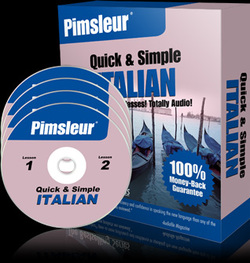 So, we actually used the Pimsleur CDs more than Rosetta--in the car. We made a deal with Lucas that on the way somewhere we'd play his music (he loves They Might Be Giants) but on the way back we'd listen to the Italian lessons. We all really got into it--replaying some lessons over and over until we got them right. Pimsleur is a very good option and uses a traditional approach--subject specific words and phrases. Useful stuff. I never really got far enough into Rosetta to learn as much as I did from Pimsleur. Also, Pimsleur uses both male and female characters--which was a good way to learn the differences in saying something to a woman rather than and man and vice versa. Here's a link to Pimsleur. There was also a third way we studied Italian: Google Translate. As long as you are signed into your Google account (Gmail) you're good to go, with a phrasebook to save all you're more important words and phrases. There is a small star that when pressed will save the translation to your very own custom phrasebook. I kept adding phrases that I thought I would need. For instance, I did sections on cursing and fending off potential crooks, health, food, and general conversational stuff. etc. Lisa and I would sit with our Kindles at night and test each other from the phrasebook lists. You can even have Translate speak to you so you can hear how the word or phase is pronounced. 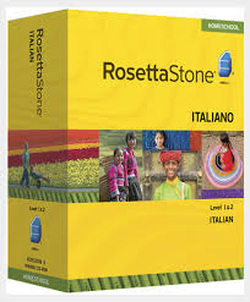 Learning Italian should be easy, after all, I'm full blooded Italian. Well, my parents never spoke Italian at home. I remember them telling me that when they got married back in the Thirties, they wanted an American household--English speaking. So I never learned my mother's tongue--Neapolitan--or my father's tongue, southern dialect from Molfetta. Sure, I learned a few words here and there... mostly slurred curse words. But I was determined I would learn some real Italian before I left for Italy. We all needed to learn some. We had two options. Lisa picked up the Italian Rosetta Stone software and we already had Pimsleur CDs. The Rosetta Stone is an odd way of learning a language. There are no translations... just photos and the spoken or written word. Their theory is to learn a language like babies do--by associating words with what you are looking at. We all tried it on the computer--Lucas too--but it was not really that convenient. You had to plug in a headset/microphone unit to use the software. Also, we found later on that their android app only covered a limited number of chapters and then they blackmailed you for more cash. More? Hey, Rosetta was expensive--$400! For that money I expected to do the whole course, whether on the computer or on my android device. And consider that the mobile version is often dumbed down. It really made it impossible to use the mobile version of Rosetta while I was taking my weekend baths. (A great place to practice a language). Another small annoyance was that Rosetta at times had trouble recognizing words as we spoke. I mean, I know that I'm saying something simple like "bambino" correctly, but sometimes it asked me to repeat 2-3 times until it understood what I was saying. I had a very good headset on a high end computer with decent sound card, so that wasn't the problem. 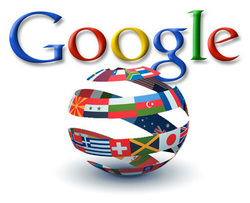 You can get a translation either way... English to Italian or the other way around in case you've come across some Italian that you needed translated. In fact, often I would research Italian web sites that Google didn't list a "translate this page" link (a pretty handy thing by itself). So I'd copy the full text from an article, paste it into the Italian side of Translate and presto! English. Ok, so the translations for full bodies of text were not that great, but at least I got the gist of the article I was reading. The best thing about Google Translate is the price. Free. In the end we all learned some Italian. Lucas was a bit shy but spoke perfectly when he did speak Italian. Lisa remembered a lot but face to face had a hard time coming up with the right Italian words. I did better, perhaps because I had learned some French years ago and wasn't afraid to dive in and sound Italian (I think my accent is pretty decent. Pat Pat.) Of course there were times it was difficult to have in depth conversations but I still managed to talk to a lot of different kinds of people... young, old, shopkeepers, artisans, etc. Learning a language is a skill that I wish they would push a bit more in our schools. Many Europeans know some English, but very few Americans know any French, Italian or German. In fact, I was disappointed when I discovered that our school district doesn't even offer Italian or French--both were options when I went to high school. Too bad... Dommage... Peccato. --Jerry Finzi P.S. If you like what you've read, please LIKE us on Facebook and SHARE us with your friends who might also be interested. Gratzie!
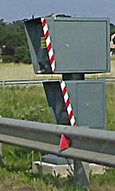 FIXED CAMERA FIXED CAMERA My advice is to look for the blue P (Parking) signs and find parking just outside of the centers of villages or tourist sites. Even in Pisa there are decent (though expensive) parking lots one block from the Leaning Tower. It's the same for Pompeii. Most towns and larger cities like Florence or Siena have public lots. These are affordable and safe (some are indoors or underground) and all are decent walking distance to the sites you would want to see. Of course, as a rule, don't leave valuables in the car. Some (like in Siena, Cortona or San Gimignano) even have escalators nearby that take you up to the center of the raised town. And if you are just passing through a small raised village, most have a loop road that goes up and around and back down again (circling the village center), usually with several parking lots along the way fairly close to the centro storico (historic centers). Again, learn to recognize and respect the ZTL. When in doubt, don't go through. When in areas where you have to go through, like when your hotel is in the ZTL, don't panic. Just make sure your hotel contacts the local police to let them know your license plate number and type of car so you don't get a ticket. For example, in Matera it was impossible to get to our hotel in the heart of the old sassi section without driving through a ZTL. We gave our plate number to the hotel staff to call into the police. (Hopefully, that worked.) You can even get a special handicapped permit if you are staying inside Florence's historic center. And when you have return a car like I had to, in downtown Florence, use Bing Maps or Google Earth street view (before your trip) to take a look around at street level for the ZTL signs. Do a drive through at ground level in Earth. This is especially helpful for Florence. There is only one way IN to the car rental return garage and one way OUT. Any other streets will take you into a ZTL. Most of this is by design to raise revenues. Just educate yourself to get around the ZTLs safely. I should mention that the ZTL zone in Florence is really big--pretty much the entire tourist center. This is one of the reasons why we opted out of going into Florence itself. We would've had to park in a lot very far from the tourist sites and either take the confusing buses or walk it. With my poor legs, that would have been a real effort. In fact, Lisa and I recently discussed that if we ever do get back to Florence we would stay inside the center to make things easier. There is so much to see in Florence that I'm sure a nice way to see it all is throttle back, not go anywhere else BUT Florence for about a week. Perhaps that's another trip... Speeding and Speed Traps: Well, the good news is, driving on highways in Italy is actually a bit safer than here in the U.S. First of all, the fast lane (as we call it) is really a passing lane that most Italian drivers seem to respect. If you enter the passing lane, you are expected to pass the slower traffic in the other lanes, and then to move back out of the passing lane. Guess what? They actually do it. This means if you park yourself in the middle lane and someone comes up behind you, he won't ride your butt but zoom around you in the passing lane. Just make sure you don't go into the passing lane and NOT pass. If you coast along without passing, you WILL have someone hugging your rear. Also, be aware that once in a while you'll get a speed demon blasting by everyone--but at least they're in the passing lane. Expect to be shocked once in a while, or keep an eye in your rear view mirrors so you don't get spooked. In general, keep below or at the speed limit. There are so many ways for local and regional Italian governments to catch you. Why chance it? Now, as for the speed zones. There are basically two types of speed control technologies used in Italy. The first is cameras. They take a picture of your license plate and give you a ticket automatically. You'll never see a policeman and the ticket may take the better part of a year to get to you. There are fixed cameras--large gray boxes on the side of the road or hanging from a bridge or pole. The other type of camera is mobile and operated by a policeman sitting on the side of the highway.
GVI Driving Tip: Before traveling to Italy, check out signs on Google Earth (street view) in areas you will be traveling in. If the signs are a bit wordy, pull up Google Translate to find out what the sign says. I found this enormously helpful for finding out restrictions on parking signs, signs posting the schedule of the local market day in the piazza, etc.
Safe driving! --Jerry Finzi So I thought I'd sit down and think about what we brought on our three week tour of Italy and share what was useful, what was a waste and what we didn't bring but should have. It turned out that our luggage was right on. The A. Saks soft luggage is lightweight, the fabric is tough as nails and the layout of pockets and compartments is very logical and useful. Lisa tended to use the larger rolling duffel (2nd from the right) but she now admits that she brought way too many clothes and could have gone with the smaller rolling pack (2nd from the left). I used that one for all of my stuff, aside from a pair of shoes that went into the top of the large duffel, wrapped by the fold-a-way, lightweight duffel (on the right side). The foldaway turned out to be good for in-country car travel for just throwing things (even groceries) in the bag to toss into the car. Of course, this became a check-in bag on the flight home to hold most of our clothes, making room in the carry-ons for fragile items and gifts. Lucas was proud of his backpack unit and it fit all his stuff, including some of his stuffed buddies. It fit the overhead when loaded, and for car or train travel would hold even more when expanded. About the only complaint I have is that the handles on the backpack and small trolley are wobbly and I don't care for the T Handles. The D-style handles on the larger duffel are more ergonomic and sturdier. All the wheels worked well, even on cobbles. The zippers are the best...all very heavy duty. All in all, we were all satisfied with A. Saks. Clothes: Lisa brought way too much for the informal way we were traveling. In general, we packed a 30/70 ratio of summer to autumn clothes. Even though I thought I did enough research on October weather, I failed... it was more like July or the end of August in the northeast U.S. Personally, I hated my one pair of so-called lightweight "travel" pants. The fabric is odd, a bit noisy and actually feels hotter because of the lack of cotton. I really missed my jeans. I felt the same about my Colombia travel shirts (1 short and 1 long sleeved). I think they actually made me feel hotter. Lisa thought she brought way too much black--mostly wrinkle-free business casual stuff. As it turned out, the evenings were at the end of long, tiring days. We were not inclined to go out to fancy places dressed up. We just wanted a good meal and a solid night's sleep. Lisa advises that unless you are planning on going out to finer restaurants and such, bringing more than a good pair of walking shoes or sneakers is overkill. Lucas was fine with his mix of cargo pants, shorts, t-shirts, one button down and some long sleeve tees. We brought a nice pair of Italian woven boat shoes for him that he never wore. It was comfy sneakers all the way across Italy for him. Jacket-wise, Lucas and I both brought a fleece jackets and shell jackets, which we pretty much never wore. Lisa had a rain shell with a hood that got carried around. Lucas was wearing his hoodie fleece the first day or two but that stopped with the heat. We all word shells on the hot air balloon but that's about it. In general, bringing clothes for layering just wasn't needed because of the summer-like temps. If anything, we might have brought a couple of pairs of extra socks. That would have lessened the time needed to dry socks that we rinsed out the night before (when we didn't have a washing machine). And forget about what the guidebooks say about not wearing shorts or sneakers so you don't look like a tourist. You will ALWAYS be spotted as a foreigner for many reasons, so dress for comfort! And if traveling in summer, think "Florida--without air conditioning or ice." --Jerry Finzi Don't forget to SHARE this post with your friends, and let us know what you think by leaving a COMMENT. Gratzie! 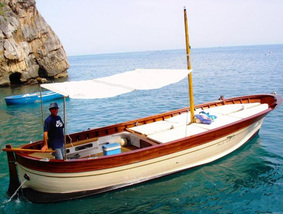 This is a "Gozo", a traditional Amalfi Coast boat that we coulda-shoulda-woulda rented. Sigh. This is a "Gozo", a traditional Amalfi Coast boat that we coulda-shoulda-woulda rented. Sigh. Most vacations just become memories, both through photos and in our mind's eye. We remember them fondly, recalling snippets of the good stuff... many become part of who we are, becoming anecdotes to ramble on about for years to come or being absorbed into our accumulative life matrix. But for some reason this time I'm experiencing something different--the dreaded regrets. Things we planned wrong or didn't make time for or simply forgot about. For example, during the rushed haze of packing I forgot a very important element for visiting Molfetta and paying homage to my Dad. I have some of his hair in a locket that I cut on the day he passed. I always said to Dad that someday I'd take him back to Molfetta with me. My simple, sentimental plan was to take some of his hair and drop them into the sea in Molfetta harbor, perhaps with some flowers--bringing Saverio back home again. I realized I had forgotten the locket when I was flying over the Atlantic. This is why the plan changed for Lucas and I to bless ourselves in Molfetta sea water in his honor. Another romantic idea was quashed when I forgot to print out a copy of our marriage vows to take with us. I thought it would be nice to renew our vows in Italy--we had just passed our 15th anniversary. I even researched how much it would cost to have a little ceremony... little church, a priest, some flowers... apparently a big--and expensive--business in Italy. Instead, I thought of reading our vows while up in our hot air balloon. But I forgot to bring them along. I had all sorts of other scanned documents on our devices (Lucas birth certificate, handicapped card, passports, credit card copies, etc.) but the vows? Nope. Babbo forgot. So while up in the balloon all I could squeak out was asking Lisa if she would marry me all over again--along with an apology about forgetting the vows. She did say, "Yes"... again. The rest are more practical regrets. We should have gone to the Roman Forum instead of the Palatine Hill. It's more... er... monumental there. More research here would have helped... and a really good tourist map of the area. If we had just walked right instead of left the day we got trapped above the forum looking down on it all. We should have shortened our Rome visit down to 2 days and added them to our Molfetta stay. This would have given us time to go to the town hall and research family history and to find the Finzi ancestors in the town cemetery. This would have given us more time to explore Puglia... we fell in love with the place. Caves, dinosaurs, Trulli, the rocky sea coast... the bread, pizza and the people. I suppose we should have gone into Florence. The combination of heat, amazing crowds, conniving scammers and gypsies, the fear of ZTL tickets and our overworked legs got the best of us. We also regret not visiting a single market in all of Italy. The market days move from town to town each day and we just kept missing them. In hindsight, we should have made visiting one of them THE thing to do rather than hitting another tourist site. I know it was a matter of timing, but I really wanted to rent a boat in Amalfi and captain ourselves around that rocky, mountainous, grotto filled coastline. A similar rental would have been great along the coast near Molfetta, too. There are grottoes there aplenty and the clearest, cleanest water in all of Italy. I could have asked Vito if I could have made my own pizza in his Forno Antica (which means Antique Oven). That would have rounded out my pizza expertise. Both Lisa and I agree that we might have not done the Vatican Tour. Sure, in the end we got great photos of the art and magnificence from both the Museum and the Basilica, but we had more memorable times doing the simple things... like our picnic on the Isola in the river or walking through our Trastevere neighborhood. We are not well suited to waiting on long lines or doing the most popular things that tourists do. But even we fell a bit into the trap of that Must-Do Checklist that drives most tourists. I would have rather have taken a taxi down to the Appian Way to take a stroll and have another picnic along those 2000 year old cobbles and tombs. Besides, it's still free to walk there (tickets are needed for the catacombs, however). I am pretty certain that in their wisdom, Rome will fence this off too and start charging just to take a walk, as they did on Palatine and the Forum. In the end, Rome was not our most favorite place. It was far to dirty and graffiti-ed and crowded. The fear of being robbed was always in the back of our minds, whereas it never entered our minds while traveling the countryside or in Puglia. And perhaps we should have stopped by a vineyard or two, although the fake, tourist wine experience of Mormoraia turned us off. It seems that most of these places cater only the tourist trade and are not really in the business of producing the great wines. There are cookie cutter agriturismo vineyards like this all over, but especially in Tuscany. That book (and film) Under the Tuscan Sun created a real tourist boon mostly filling buses with divorced aging hopeful romantics and pseudo wine connoisseurs who giddily pay ten times what that tourist swill is worth. For us, paying under five Euros a bottle at local alimentari for excellent wine was a more authentic experience. The last thought is the timing of check-ins and check-outs. When check-in is at 3pm it really limits how you plan you days--especially when you have luggage in the trunk of the car to worry about. We had difficulty in finding locker storage in Italy. It might have been better for us to plan longer stays in less places so we could explore more. It's rough having to pack and unpack each time you move. And packing for a train travel day is even tougher... you don't have the car to just toss stuff into as you're leaving. And earlier morning checking out would have served us better, but try that when there are three to get fed and showered and out the door. Either our Trullo or the Molfetta apartment would have made great travel hubs for exploring all of Puglia. And one central Tuscany location might have been more time saving than having to move from Cosona to Mormoraia after only two days (although we loved the southern Tuscany area). I suppose many after returning from truly Grand Voyages think, "Coulda-Shoulda-Woulda" (in Italian, potrebbe avere, dovrebbe avere, avrebbe). Niente is perfect, but in the end our memories are perfetto. --Jerry Finzi Don't forget to SHARE this post with your friends, and let us know what you think by leaving a COMMENT. Gratzie! 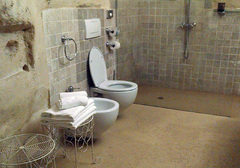 Matera cave hotel bagno. Matera cave hotel bagno. We all have to go sometime... some more than others, some less so. If you drink the Italian bottled "digestivo" waters, chances are it will be more so. But in Italy things are not like what we are used to back in the States. Here's the poop...er.. scoop on the plumbing in the boot shaped country. First off, when you stay in nice hotels or apartments chances are you might actually have a more modern, more powerful toilet than you have back home. Most are more than adequate although plain, while others are very stylish, right off the pages of an Italian decorating magazine. Oh yea. Chic. Some are mounted on the wall with space underneath for mopping. The flushing mechanism and tank are usually built into the wall above and behind the toilet. There are usually two large plates which you push for flushing... the smaller side for numero uno, the larger side for numero due. I've found the flush on these modern types of toilets to be very forceful... early on I would always wonder if it would blast back at me. It never did. The trap openings are also much larger and wider than American toilets so they are harder to clog. Now, lets get to what you find out and about in Italia... If there are building codes in Italy I am sure that people ignore them or pay other people to ignore them. I don't think I ever saw a handicapped accessible bathroom in all of Italy. In fact, some bathrooms were so small it was difficult to get into the tiny space and close the door behind you. I only saw one bathroom with proper ventilation, even though here in the States it's written into the Building Code. Most apartments I stayed in didn't have a window, either. No ventilation--no window equals stink and eventually, mold. I even saw some without lights at all. One particular modern one on the public parking lot in Castelmezzano had no lighting, only odd little round skylights. It was dark at midday. Correct me if I am wrong, native Italians, but with the use of bidets being so prevalent, I sense that most simply use a washcloth to tidy up after their toilet time while using the bidet. (When I lived in Paris I used the bidet mostly for soaking socks or cleaning my feet.) Perhaps I'm wrong. There was only one apartment I stayed in (Molfetta) that had an abundant supply of of toilet paper. With all others we felt like we were on rationing. Ok, the last insult I figured would have gone out of style by now. I first encountered the "Turkish Toilet" when I lived in Paris. First while traveling around France and then (sadly) when renting my 6 flight walk-up studio apartment, which had one I shared with the old lady across the hall. I'd crouch down to use it but she would go in late at night to empty her chamber pot. Yes, a chamber pot. (This is way back in mid-seventies, folks). We first encountered one in the Florence Hertz garage. I had a bit of an emergency but when I entered the bagno in the rear of the garage the emergency went right out of me. My old knees can't crouch the way they did back in the seventies. I called Lucas back to see... he took a picture. 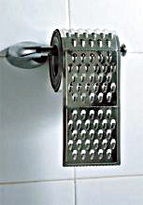 Mama Mia! Mama Mia! You might have to pay for a toilet, too. The one at Grotte di Castallana charged one Euro to get into the modern, coin operated stalls--and there was no toilet paper! Hey, for a buck and a quarter I'd expect a can of soda to go along with the seat. Others at train stations might be pay also, some with attendants who sit there waiting for a tip. Now here's the nutty thing. In many we went to, there was a nice, modern toilet... but NO TOILET SEAT! That's right, sit a few inches lower than normal on hard, cold, germ ridden china. Shudder. I opted out of these. Lisa used one in an emergency and she said it "looked clean" but as I understand it, germs are invisible to humans. To their credit, the toilets without seats did usually have a vessel with a toilet brush and some sort of bleach solution to wash before--or after--you use it. It seems like a lot of trust to put into your fellow human being to me. Toilet paper. Yes. Toilet paper. If there is toilet paper at all, it will more than likely be a stack of tissue thin napkins--barely able to handle your... er... business. Or it will be more like brown paper hand drying napkins we find in American public rest rooms. Yea... I always want to sandpaper my butt afterwards. Toilet paper isn't such a big thing in Italian supermarkets, either. Sure, it's there. It just doesn't take up much shelf space as it does in the U.S. Even when there were rolls, they were usually either very thin or scratchy. My final gripe with their toilet paper is the brown colored stuff. Huh? It's a brownish color--the same color as... well, you get it. 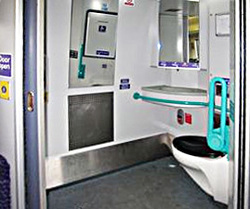 Toilet on a Train: Wasn't that a Hitchcock film? Toilet on a Train: Wasn't that a Hitchcock film? The last part of my plumbing rumblings has to do with train travel. I love traveling by train. Back in the Forties in the U.S., car and gasoline companies conspired and paid off politicians to rip up trolley and train tracks everywhere. This was their plan to more cars and gasoline. It worked. Train travel is pretty much dead in the States. Nearly 8 out of 10 people in the U.S. own cars (there must be lots of kids driving!) But train travel is much more comfortable than driving for long hours or flying. And when nature calls, there is usually a big, comfortable bathroom on board. The same holds true for Italy. The first train we took from Rome to Chiusi was not a modern train. It was known as a Regional train--an older, well worn train. Comfy enough, clean enough, but definitely showing its age. When I had to go, I entered the older style rest room where the lights didn't work, the cabinet doors were rickety and the napkin folded toilet paper was hard to find (tucked into a odd little cubby). The real treat was when I looked down into the toilet. No water. Just railroad ties rushing by under the fast paced train. It reminded me of the toilet on a party fishing boat out of Brooklyn I was on years ago... with the toilet looking right down into the ocean. I pity the poor Italian hobos who walk these tracks. In contrast, on the modern high speed trains (Frecciarossa, for example) there are ultra high-tech bathrooms with futuristic sliding doors, cool lighting and very clean facilities. Nothing to fear here. They even had rolls of paper... not tissues. All in all, going to... no... IN Italy is hit or miss. Er... literally. At least we didn't have to do it the way the ancient Romans did. Sharing a sponge with your neighbor! --Jerry Finzi P.S. If you like what you've read, please LIKE us on Facebook and SHARE us with your friends who might also be interested. Gratzie! 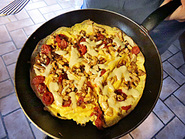 Home cooked frittata at Mormoraia... for breakfast. Home cooked frittata at Mormoraia... for breakfast. We decided that we were going to pick up supplies to cook with tonight after our trip to Florence and Fiesole. We tried to look for signs for an In CoOp supermarket or an alimentari Grocery store... but no signs and the only alimentari on the way back to Mormoraia was closed (at 5pm on a Saturday afternoon?), so we pulled on the side of the road and asked Tommy where the nearest one was. Niente closer that 20 miles... at least that's what he says. I don't trust him totally. After all, besides sounding a bit robotic, his accent is pure American! How much can he possibly know about local shops? He's just a tourist--just like us! So I figured that nearby San Gimignano must have an alimentari outside the historic walls... so we set course... 8 minutes away. We found one! A nice one too. Paper towels for napkins, cleanup and to clear my clay dusted rear window... eggs... sliced tachina (turkey)... brasciola (very thin sliced salt cured beef)... little tomatoes... onion... snacks... drinks...butter... half loaf of bread. We were set for dinner and breakfast--or so we thought. Another side hassle was that we were so chatty with the prospect of a home cooked meal combined with our friend Tommy not calling out turns for some reason as he usually does... we kept missing the turn-off out of town--four times! Sigh. (Our family travel theme song, to the tune of Beach Boys, I Get Around: "Turn, Turn Turn around, I turn around... Turn around, ooh..ooh...oooo... I turn around... I'm gettin' bugged drivin' up and down the same old street...") As we hunted for basics in our cucina cupboards, there were no staples that typically are found in these apartment or house rentals... salt, pepper, foil, spices, coffee, sugar, etc. So this meant that problem solving Babbo had to fix this somehow--and we were not going to pay the 50 Euro per person for dinner in Mormoraia's little cafe! OK... boil water... cook bird nest pasta we bought... frying pan... butter... slice up the brasciola (salty enough) into the pan... Lucas, slice those little tomatoes and toss in... add some wine... reduce sauce... toss in a bowl and grate little piece of leftover pecorino cheese we had two days ago... butter the unsalted regional bread... pour the rest of the wine... and Presto! My new recipe! Pasta Pomodoro e Brasciola alla Babbo! Lisa and Lucas said it was one of the best meals here so far. Bravo, Babbo! One morning I made a down and dirty frittata with the little we had in our Mormoraia pantry. Buono gusto! Other times we bought food at the large supermarkets, which had great cheese displays, not so decent breads, unrefrigerated milk in cartons, but lots and lots of produce. The fruits and veggies were very good for supermarkets. The tomatoes disappointed me, though. They seem to be selling a lot of hybrid hothouse grown tomatoes (like tomatoes on the vine in the U.S.). Decent quality, but not organic, fresh picked or heirloom varieties.
The cheeses were something we could get anywhere--supermarket or alimentari. Cacciacavalo was our favorite... a dumbbell shaped cheese with mellow, nutty flavor which went with everything. One of my favorite things was the millefiore honey... thick as jam and incredibly delicious on bread in the morning. It was also great with ricotta. (I was never really a fan of American style honey.) Lisa also fell in love with making coffee (espresso, excuse me) in those little Moka pots. I'm sure Santa will leave one under the tree for her. I wish I had access to a pizza oven while in Italy. I would have loved to make pizza there... but heck, I discovered that I make pizza better than we had in most of Italy anyway. Cooking for ourselves in Italy became one of our favorite things, although Lucas always liked eating out in a new ristorante. --Jerry Finzi Don't forget to SHARE this post with your friends, and let us know what you think by leaving a COMMENT. Gratzie! Taking a day trip from our Amalfi Coast apartment, we headed out toward Pompeii... over the mountains and a short autostrada drive away. I've read about all sorts of scams in Italy, many done by gypsies. This one was unexpected... a real shocker:
On the way to Pompeii, I was about to pull into the toll booth of the Autostrada, I noticed a young woman standing, texting, leaning with her back to the toll machine... and the car in front of us almost brushing her pregnant looking belly with their side mirror. Huh? At first I thought she was ticket taker outside her booth, then it dawned on me. She a gypsy trying to scam people! The way she was leaning and pushing her belly into the car's side mirror, she was forcing drivers to pull out too far from the machine to put money into. Then she takes the money out of your hand to "help", gets the change for you, and pockets some. You have to remember here that when you get change the coins could be 1 or 2 euro pieces... that's $1.27 - $2.60 each coin she pockets. I imagine if you try to put a really big bill in she'd just grab the cash and run over to the lanes in the opposite direction. I guarantee the belly is phony. It looked very squishy when the car mirror pushed into it--like foam. So, when she tried this with me I growled my very best "Va via!" ("hit the road!") and she shrunk away from my car. I opened my door so I could reach the toll machine and sped off when the toll gate lifted. Imagine this happening at any U.S. highway tollbooth (Again, don't Italians need jobs? How about toll keepers or guards?) I can't stand these human leaches. By the way, I should mention that while I did carry my wallet in my front pants pocket, I did opt to use a flatter money clip wallet to carry just essentials for each day: our main "points" credit card (with no transfer fees), our dedicated ATM card (we opened an account just for this trip with limited funds in it) and daily cash. I had one of those money belt pouches with me, but never really used it. Instead, I bought a leg wallet from Amazon and used it all the time. The leg wallet was able to carry all of our backup cards (though Lisa kept one in her PacSafe mule bag as another backup) along with all our extra cash. There were only a few days I didn't wear it---when it was too hot for pants and I wore shorts. We were lucky in Italy. We never got robbed but caught a few trying at times. The best advice I can give is learn the simple expression, "Va Via!" Don't just say it... growl it or yell it. Make noise. There are gypsies dressed as makeshift nuns around the Vatican holding cups for handouts. You can tell their habits aren't correct. In general, do NOT give handouts! These beggars might have a partner who just saw where you keep your money. Charity remains at home--when you travel. There are other gypsies that toss babies to you to catch (just dolls) and while you are distracted, their kids snatch your purse, camera, etc. There are people at train stations that try to "help" with luggage or with those ticket machines... just don't let anyone help you. Oh, and don't be suckered into taking pictures of or with those fake gladiators outside the Colosseum. They will strong arm you into paying huge fees just to take a picture of them. They are pretty aggressive. Now that I think of it, that guy who was crowding us in the Colosseum gift shop was more than likely trying to pick our pockets. Toll booth gypsies. Who knew? You see, there are many types of scammers and many ways to pick our pockets without actually putting a hand in there... --Jerry Finzi Don't forget to SHARE this post with your friends, and let us know what you think by leaving a COMMENT. Gratzie! |
Categories
All
Archive
January 2021
|


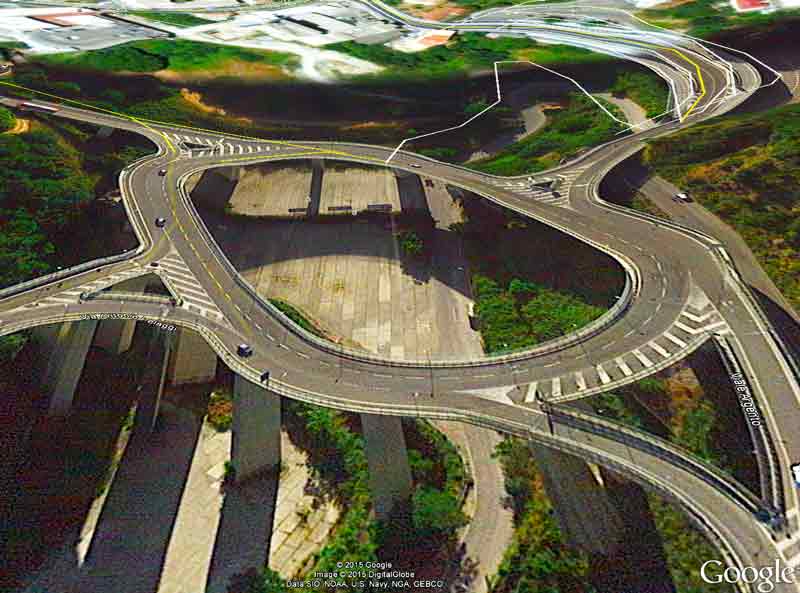
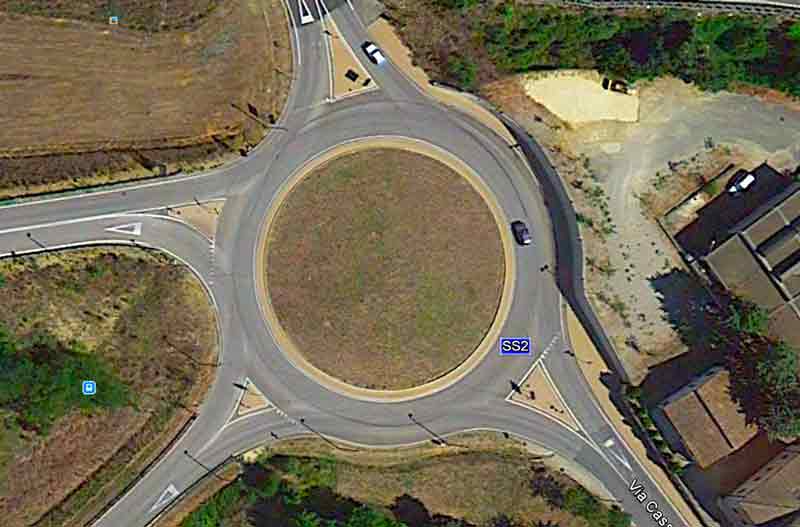
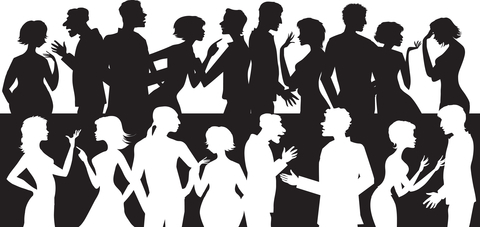
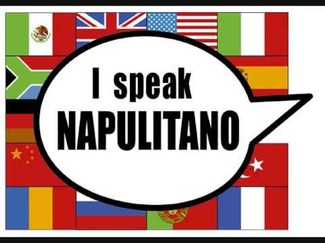
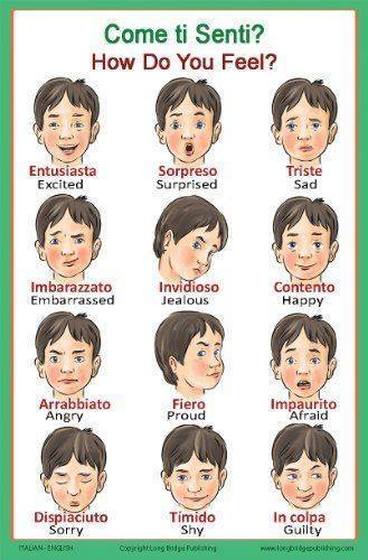
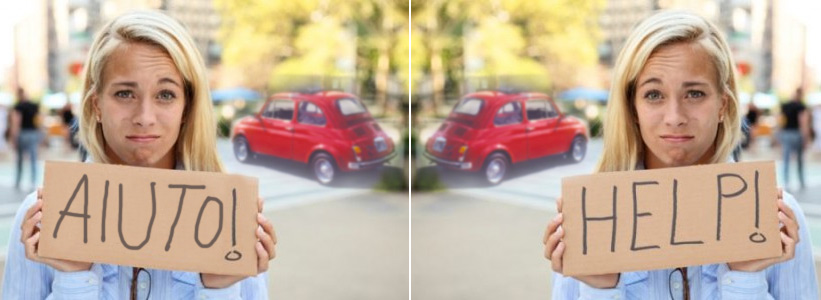
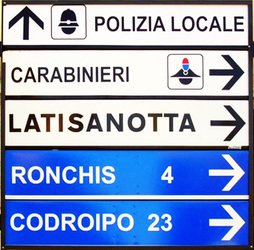
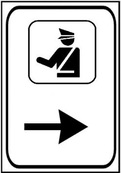
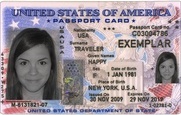
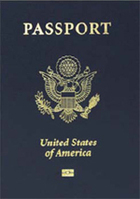
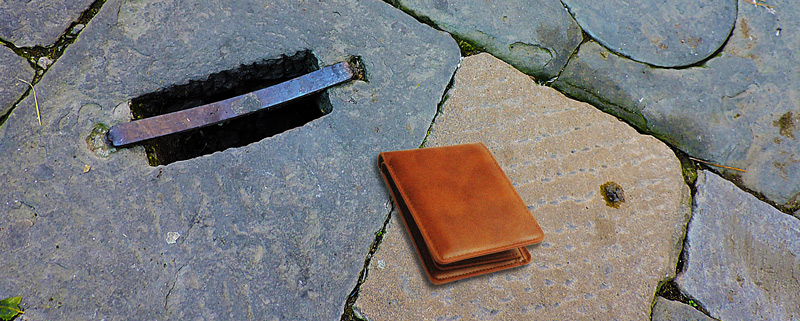
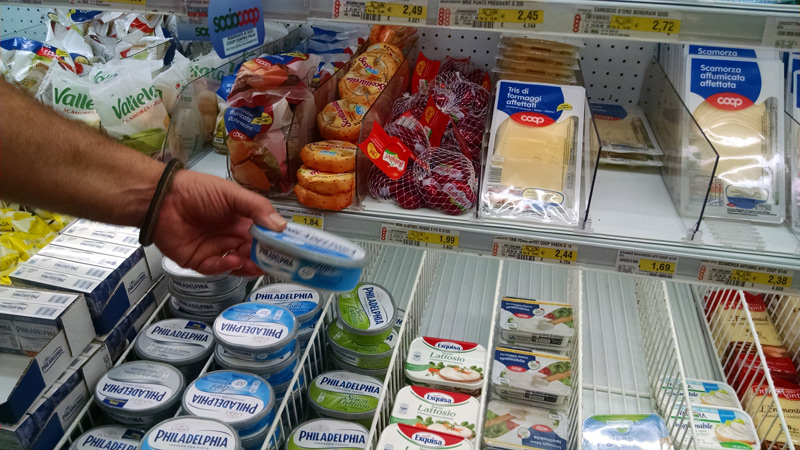
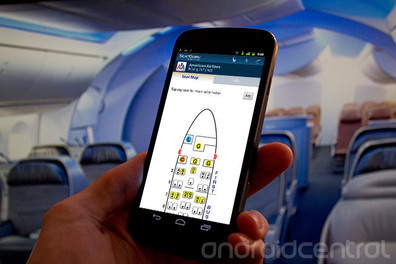
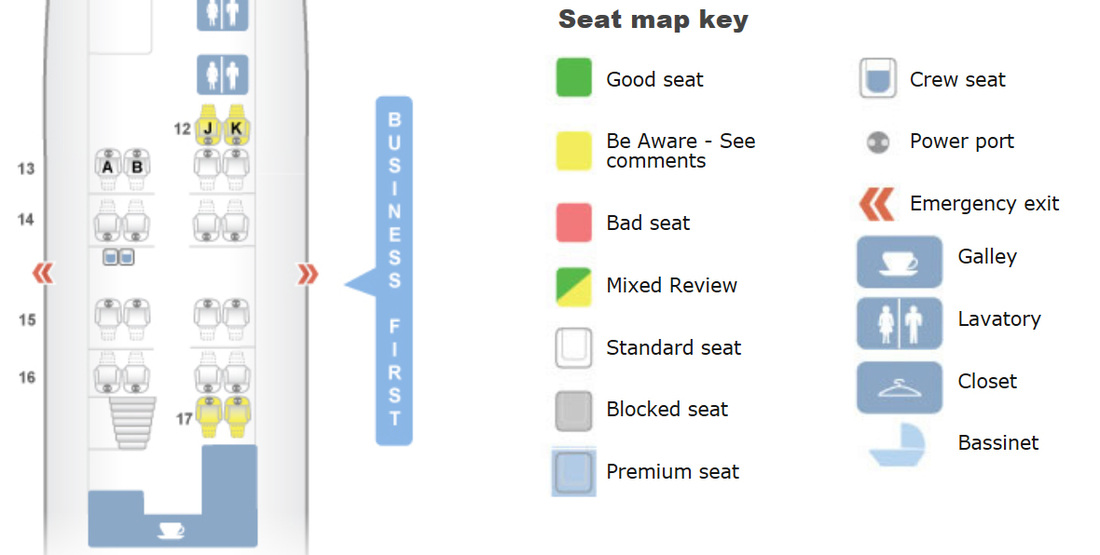
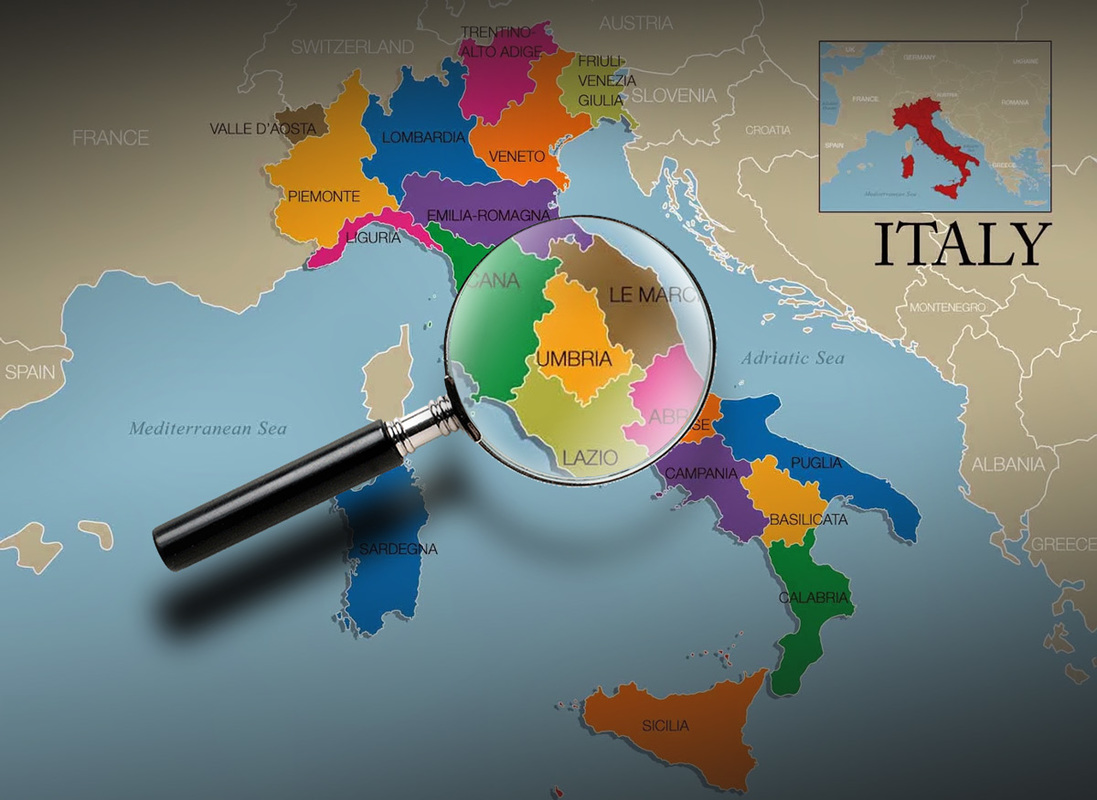
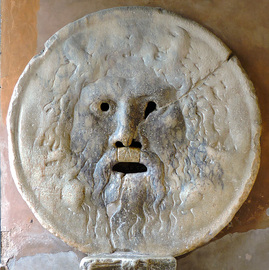

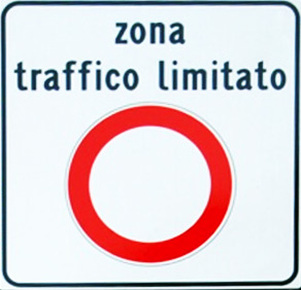
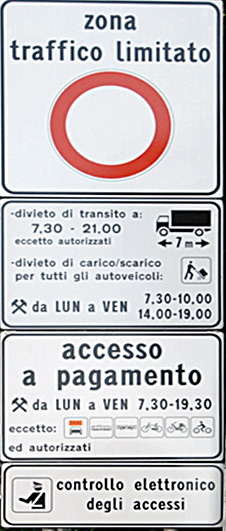
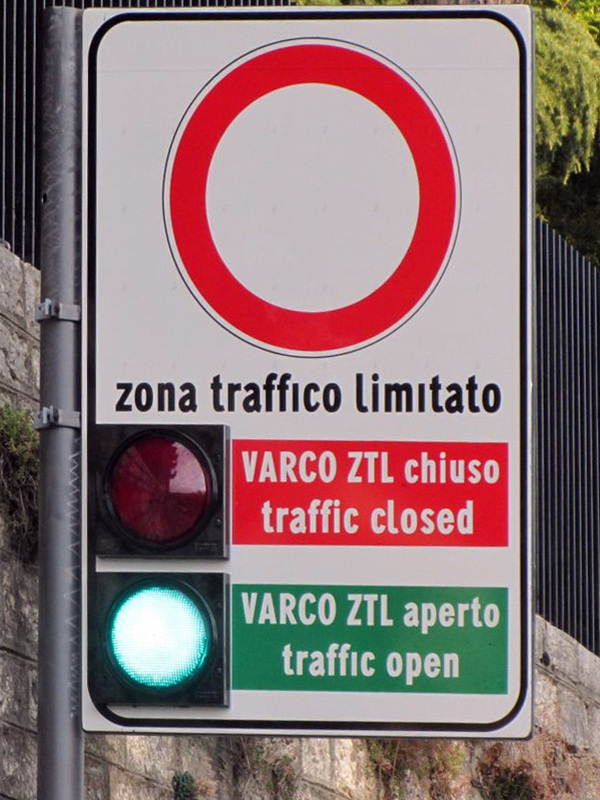
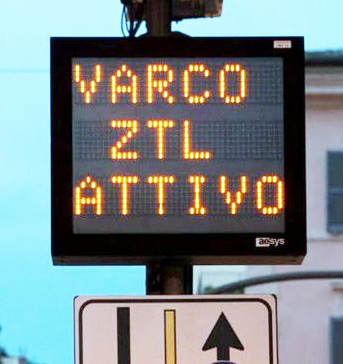
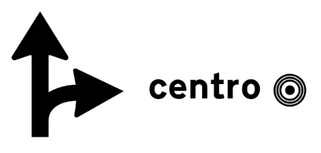
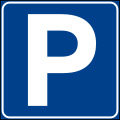
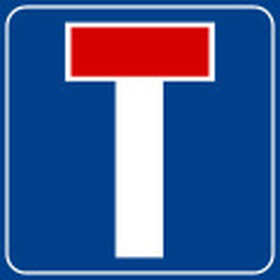
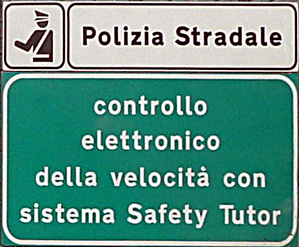
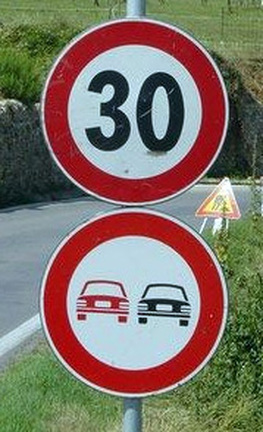
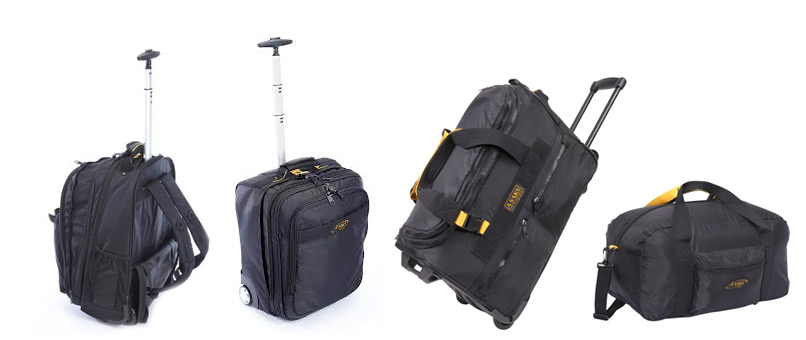
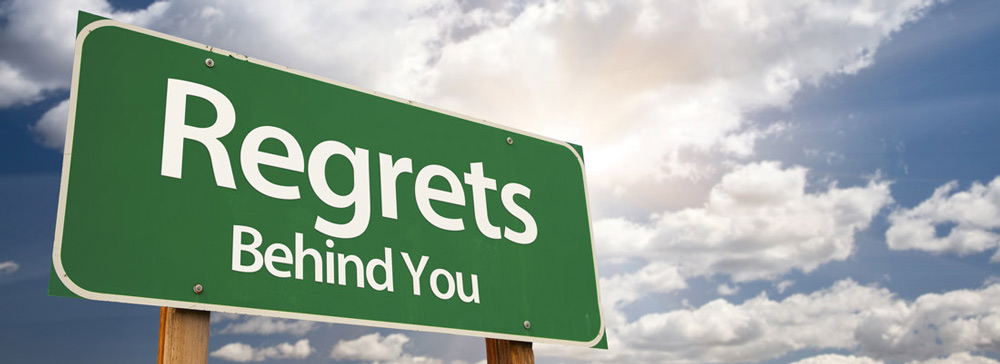
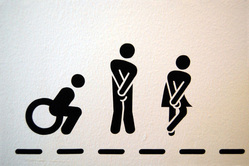
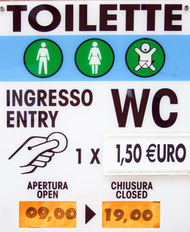
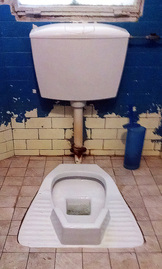
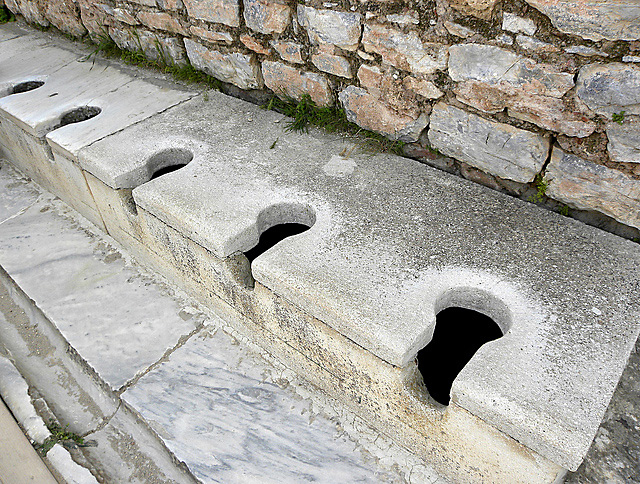
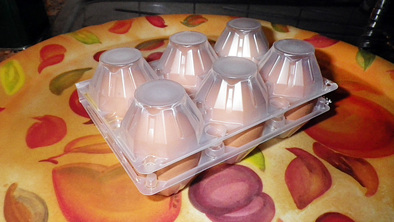
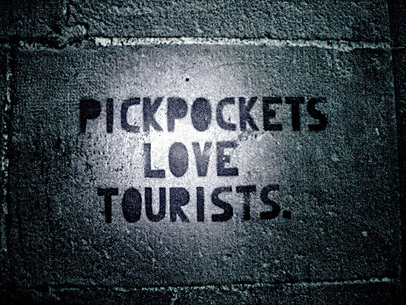
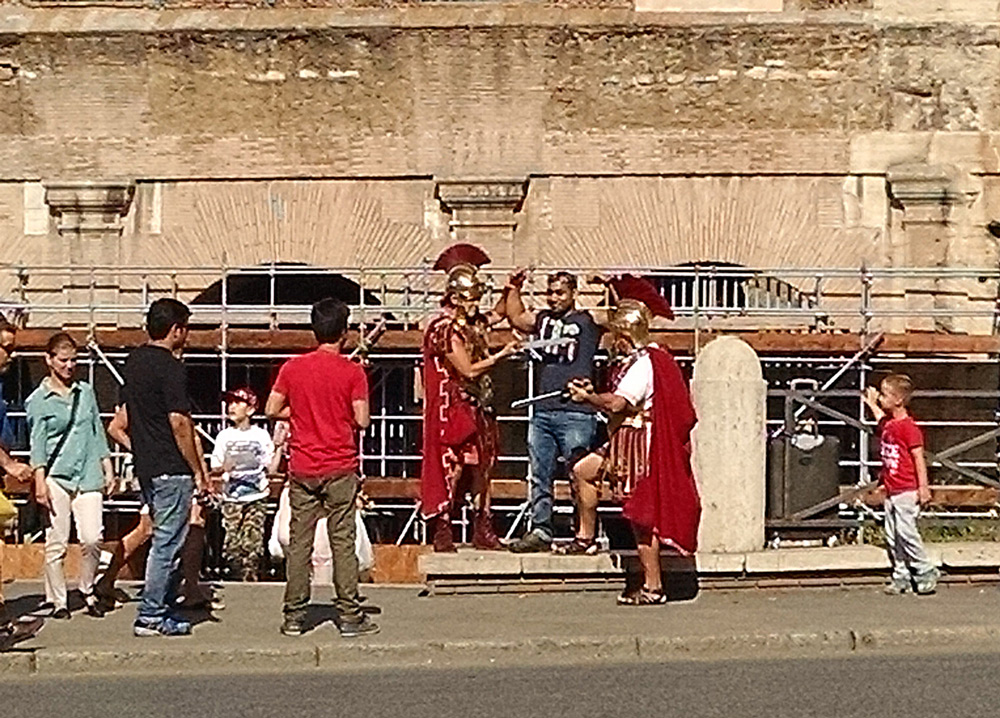
 RSS Feed
RSS Feed
